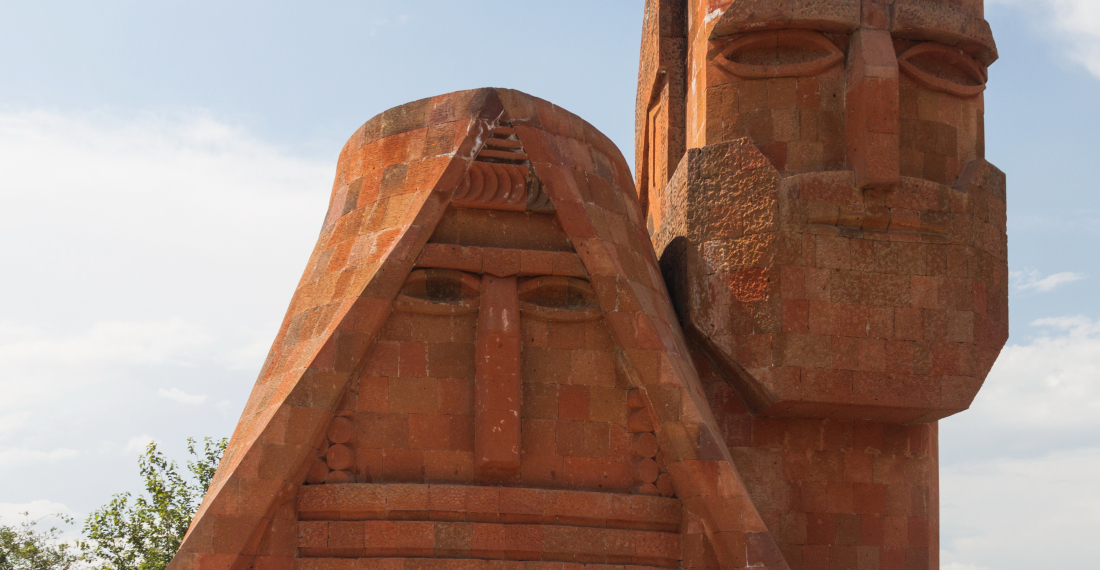As Armenia and Azerbaijan continue their intensive negotiations to reach an agreement, tensions grow around the self-proclaimed Nagorno Karabakh Republic. Since April 23, 2023, when Azerbaijan established a checkpoint at the beginning of the Lachin corridor, only a minimal amount of humanitarian cargo has been delivered to Nagorno Karabakh via the Russian peacekeepers and International Red Cross. Azerbaijan shut down the checkpoint for ten days (June 15-25), and limited transfer through the corridor resumed on June 26. Meanwhile, Azerbaijan continues to demand the dissolution of the Nagorno-Karabakh defense army, calling these units either as illegal armed formations or saying that they are in fact part of Armenia's army. On June 28, Azerbaijan launched a punitive action against the Nagorno Karabakh defense army, resulting in four Armenian soldiers being killed. In parallel to this, Azerbaijan issues daily statements about ceasefire violations along the Azerbaijan – Nagorno Karabakh line of contact.
Experts and politicians in Armenia and Azerbaijan argue that Azerbaijan may launch a large–scale military operation in Nagorno Karabakh very soon if Armenia and Azerbaijan fail to sign a deal in upcoming months or if Nagorno Karabakh rejects Azerbaijan's call to dissolve the defense army. However, there is a lack of understanding of how to stop this upcoming a disaster. Armenia – Azerbaijan negotiations are still stuck on several fundamental disagreements, including the issue of maps for border delimitation and demarcation, as well as the establishment of a mechanism that would guarantee any signed agreement. However, the critical disagreement is related to the issue of an international presence in Nagorno Karabakh to secure Armenians' rights and establishment of an international mechanism or at least international involvement in the Nagorno Karabakh - Azerbaijan talks. Azerbaijan rejected these demands, stating that it would never accept them and that Armenians in Nagorno-Karabakh would have no special rights.
Thus, it is challenging to assess the probability of the signature of the Armenia – Azerbaijan peace agreement by the end of 2023, as probably the Armenian government will not agree to sign a peace agreement without any progress on the issue of the future of Nagorno Karabakh Armenians. Even if Azerbaijan can force Armenia to do that, Nagorno Karabakh will not accept this outcome, claiming that Armenia has no right to decide on the future of the Nagorno Karabakh population.
Thus, regardless of whether Armenia and Azerbaijan will sign an agreement by the end of 2023, there is a danger of military escalation in Nagorno Karabakh. Some experts argue that it is not the problem of the EU, as Russian peacekeepers are deployed there, so it is the responsibility of Russia to prevent such development or, if escalation occurs, to use force to defend Armenians of Nagorno Karabakh. However, regardless of what Russian peacekeepers will or will not do in case of a large-scale military flare-up, the EU is interested in the region's long-term stability and not in a short-term solution. In this context, any large–scale military activities in Nagorno Karabakh will negatively impact the EU efforts in the South Caucasus.
Perhaps, one of the tangible ways for the EU to prevent Azerbaijan from launching attacks against Nagorno Karabakh or the Nagorno Karabakh defense army could be the threat of sanctions. However, in current circumstances, this is not realistic, as any sanctions require unanimous decisions, and given the growing EU – Azerbaijan economic cooperation, there will always be EU member states which will veto sanctions.
Thus, the only realistic way for the EU to seek to prevent a new crisis is to put efforts to facilitate the talks between Azerbaijan and Nagorno Karabakh. These cannot be track one talks, as Azerbaijan will never agree to this. However, the EU has accumulated significant experience on track 1.5 and track 2 dialogues, which serve as a valuable platform for exchanging views and exploring the limits of possibilities for the sides. EU was involved in these activities in the Armenia – Azerbaijan conflict before and after the 2020 Nagorno Karabakh war, sometimes bringing together participants from Armenia, Azerbaijan, and Nagorno Karabakh. Among the vital EU-supported initiatives after the war is the establishment of Armenia – Azerbaijan expert group on confidence-building measures, the Armenia – Azerbaijan economic dialogue series implemented by the Restart initiative and Berlin Hertie school, and some others.
However, the time has arrived for the EU to take a step forward and look for ways to launch bilateral Azerbaijan – Nagorno Karabakh dialogues. Of course, it is a challenging task, given that even the term Nagorno Karabakh raises objections in Azerbaijan, as Baku claims that there is no Nagorno Karabakh territorial - administrative unit in Azerbaijan, only Karabakh economic region. However, the flexibility of Track 1.5 or Track 2 diplomacy may allow us to find an acceptable solution for both sides. Success is not guaranteed, but the EU is uniquely positioned to seek to push forward this initiative, which may prevent the grim scenarios of more cycles of violence from becoming a reality.
source: Benyamin Poghosyan is a Senior Fellow on foreign policy at APRI Armenia and the founder and Chairman of the Centre for Political and Economic Strategic Studies in Yerevan.
The views expressed in opinion pieces and commentaries do not necessarily reflect the position of commonspace.eu or its partners.
source:







